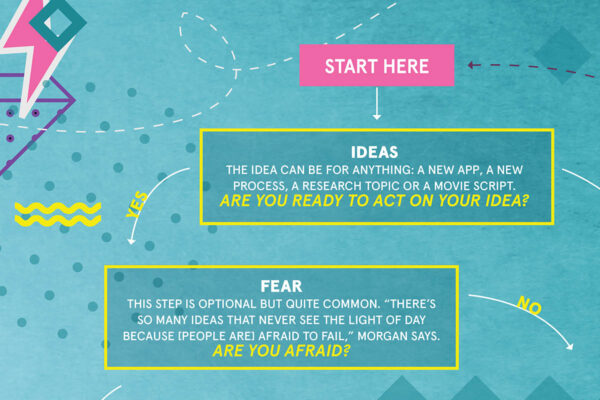Starting a new course on community engagement in the middle of a pandemic seems … impossible. After all, everyone is learning remotely. Yet Liz Kramer, BS ’08 (mechanical engineering), a lecturer in the Sam Fox School of Design & Visual Arts, did just that in 2020.
At the time, Kramer was leading the Office of Socially Engaged Practice. There, she held workshops for Sam Fox students, faculty and staff to help them make their art, design and architecture projects inclusive, collaborative and socially engaged. She showed how community engagement can be used to address systemic social, economic and environmental issues.
Kramer thought a way to keep students plugged in to community engagement remotely would be to expand those workshops into a seven-week course. So she developed “Engaging Community: Understanding the Basics” and offered different workshops each week.
“Ultimately, when I sum this class up for students, I say it’s about three things: understanding power dynamics, understanding how relationships are critical to engagement, and understanding the tools that we can use to subvert power dynamics so that we can get to authentic relationships that actually have impact,” says Kramer, who recently stepped down from her role with the Office of Socially Engaged Practice to run her design research and strategy firm, Public Design Bureau. She still teaches the course.
Students learn about power dynamics throughout the course, but the second week’s workshop, “Power, Privilege and Positionality,” is a linchpin. When students enter a community to do their work, they’re often entering from a position of privilege — racial, class, educational or otherwise. This workshop asks them to analyze who on a project has power. Why do they have it? How can you subvert that power or prioritize people who are frequently left out or do not have power?
The students also do a facilitation workshop in which they learn how to bring together the right stakeholders, plan a meeting, steer the conversation during the meeting, and reflect back while directing toward next steps. (This workshop also teaches students about cold-calling and emailing people to begin developing relationships.)
The facilitation lesson is also about subverting typical power dynamics: Are you including people who are impacted by your project but historically have been left out? What are you doing to support them so they feel comfortable speaking up? How are you steering the conversation to be inclusive?
Finally, Kramer also highlights the importance of building relationships. She assigns students to do “relationship-building one-on-ones” with one another. They have to chat individually with three classmates for at least an hour each and write a reflection about it. She also has them think about the characteristics of a successful personal or professional relationship.
“I love seeing them realize that the thing that bonds them to, for example, their hallmate, is that they have all this time together, just hanging out. When we think about community engagement, committing that time and being present with people are so important.”
— Liz Kramer
The course includes other workshops to help students thrive in community organizing, including learning about St. Louis. For that, Kramer invites a panel of speakers, all of whom work locally in community engagement.
As a final assignment, Kramer has the students develop individual projects and a collective rubric for success. It’s what she does with her clients.
“They’re able to say, ‘Here are the things that are important to me in my final projects,’ and then they synthesize those [values] and make them more tangible,” Kramer explains.
Kramer judges her own success based on how much she can challenge student assumptions and get them to think differently about relationships and community. The art, design and architecture projects the students will engage in are purportedly to benefit the community. “We’re doing good, but who is deciding what good is?” Kramer asks. “Who is actually accountable to the people who are impacted?” Community engagement is about having a plan.
“Recognize your assumptions,” Kramer says. “Know what your limitations are. Think about how you set expectations. Plan your interactions with the community. And think about how you’re going to say good-bye.”



